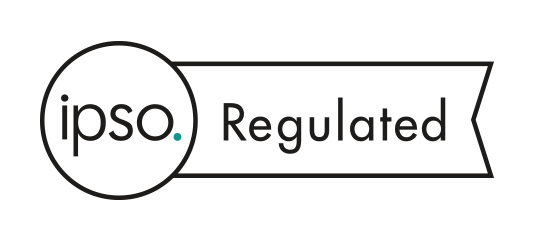Antoni Popczyński and Mateusz Sarna, both 15, investigate candidates’ attitudes towards the EU

Poland’s relationship with the European Union is at stake in the upcoming presidential election.
Picture by: Wiola Wiaderek | Alamy
Article link copied.
May 2, 2025
How will the election impact Poland’s relationship with the EU?
The upcoming presidential election in Poland is crucial not only for the country itself, but for the future of the European Union as a whole. Ultimately, it will determine whether the country will draw closer to Brussels or take a path of isolationism and confrontation, leading to the possibility of ‘Polexit’ – Poland exiting the EU.
Poland’s political landscape is deeply polarised, with two opposing sides that have led to intense and heated debates.
Harbingers’ Weekly Brief
One side is pro-European Union and includes centrist, liberal or left-leaning presidential candidates Rafał Trzaskowski (from Civic Platform), Szymon Hołownia (Third Way) and Magdalena Biejat (Nowa Lewica/New Left). The other side consists of right-wing or nationalist parties, which have often disagreed with Brussels, and includes presidential candidates Karol Nawrocki (Law and Justice/PiS) and Sławomir Mentzen (Konfederacja/Confederation).
The upcoming elections have critical importance for the European Union too, as Poland is a very valuable asset to the EU. It is one of the largestand most influential countries in Central Europe, and the Polish economy is the sixth largestin the EU.
The president of Poland is the head of state, but he (there has never been a female president) does not have much power. However, he has the power to veto bills and laws passed by Parliament. If he does this, he can keep the politics – internal and international – in a sort of a stalemate.
This is exactly what Andrzej Duda, the current president and a relic of the previous PiS administration, has been doing since October 2023 when PiS lost the parliamentary elections. Prime minister Donald Tusk is a fervent supporter of the EU, but his government has been handicapped by Duda’s actions.
Therefore, if a pro-EU candidate wins the May 2025 election, Poland is more likely to engage with the EU on key issues such as climate policy and human rights, strengthening the relationship with Brussels and embarking on a journey toward Europe-wide unity and cooperation. If an anti-EU candidate wins, it will mean the continuation of marginalising the country from crucial EU decisions, as happened during the eight years (2015–23) when PiS was in power.
Both Rafał Trzaskowski, currently mayor of Warsaw, and Szymon Hołownia, currently Marshal of the Sejm (chair of the lower house of Parliament), advocate for strengthening ties with Germany and France, deepening Poland’s integration within the EU, and adopting the euro as the country’s currency in the near future.
Trzaskowski has stressed the importance of continuing Poland’s energy transformation in line with the European Green Deal, while Hołownia has championed a more open migration policy, maintaining asylum rights for illegal immigrants.
More left-wing candidates such as Magdalena Biejat and Adrian Zandberg (from Razem/Together) take an even stronger pro-European stance, advocating for an open-door migration policy, increased European Union cooperation, and immediate adoption of the euro.
At the other end of the political spectrum, nationalist and far-right candidates reject the possibility of deeper EU integration and often view Brussels as an adversary rather than a partner. They advocate for more self-reliance, rather than closer ties with the European Union.
For example, right-wing candidate Karol Nawrockistrongly opposes the Green Deal, which he calls ”eco terrorism”, strongly rejects the adoption of the euro and supports a hardline stance on migration, arguing that Poland must defend its borders against the controversial migration policies imposed by the EU. He also continues the PiS narrative of a nationalist push for war reparations from Germany.
Far-right candidate Sławomir Mentzen shares Nawrocki’s rejection of the Green Deal and support for retaining the Polish złoty, but also promotes a more aggressive, assertive foreign policy that prioritises sovereignty over cooperation with the EU.
At the extreme far-right, Grzegorz Brauntakes the most radical stance, by strongly advocating for Poland’s complete withdrawal from the European Union. This controversial political stance is unlikely to gain mainstream support – in the latest poll,Braun is on 1.3%.
One thing is certain: the results of the upcoming presidential election will directly shape Poland’s relationship with the European Union, determining whether Poland will move closer to Brussels or further away.
The vote will also have a profound impact on the European Union as a whole. A Poland strongly united with Brussels will strengthen French and German leadership plans in the EU, imposing policy initiatives on climate change, security and economic integration.
However, a nationalist or far-right victory would bolster the growing Eurosceptic movements across the continent, particularly in countries such as Hungary and Italy, where tensions with Brussels are sharply on the increase.
It could also make EU decision-making more complicated and problematic, as Poland, one of the EU’s most influential eastern European members, would then become more of a disruptor rather than an ally for the rest of the union.
Written by:

Contributor
Warsaw, Poland
Born in 2009 in Warsaw, Poland, Antek joined Harbingers’ Magazine to explore topics related to the upcoming Polish presidential elections
His interests include biology and chemistry, which align with his plans to study medicine with a specialization in psychiatry, preferably in the UK.
In his free time, he enjoys listening to Taylor Swift and Lana Del Rey, reading and watching crime fiction, and drinking various kinds of tea.

Contributor
Warsaw, Poland
Born in 2009 in Warsaw, Poland, Mateusz joined Harbingers’ Magazine to cover topics related to the upcoming Polish presidential elections
His interests include economics, physics, and art, which align with his plans to study engineering or architecture, preferably inthe UK or Italy.
In his free time, Mateusz enjoys all kinds of sports, with a particular passion for windsurfing. He also loves learning new skills (it brings him a sense of fulfilment and growth), admiring art in galleries and exploring other forms of artistic expression.
Edited by:

🌍 Join the World's Youngest Newsroom—Create a Free Account
Sign up to save your favourite articles, get personalised recommendations, and stay informed about stories that Gen Z worldwide actually care about. Plus, subscribe to our newsletter for the latest stories delivered straight to your inbox. 📲
© 2025 The Oxford School for the Future of Journalism


